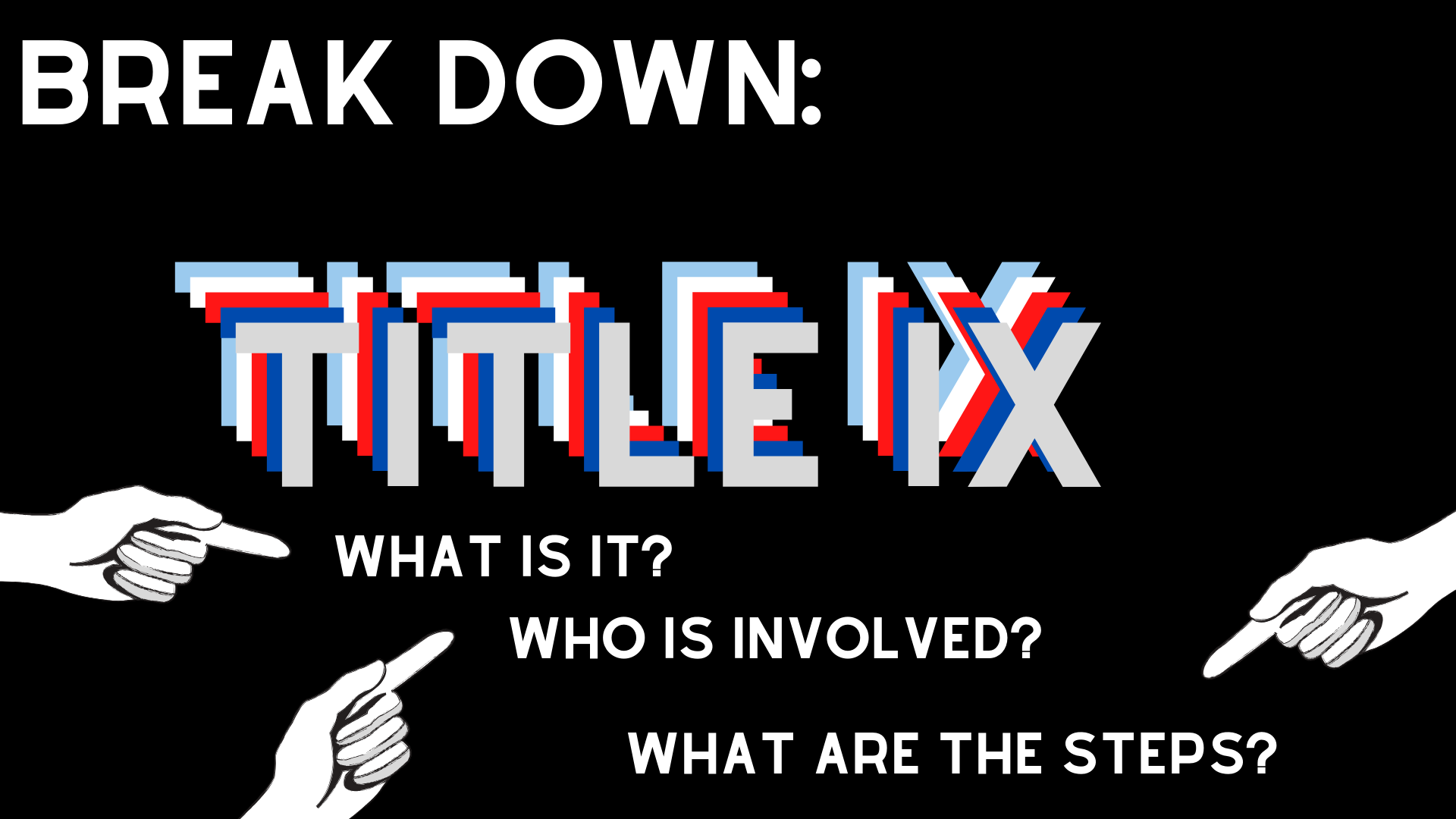Break Down: What is Title IX?
USC Aiken follows the same procedures as every public university and the federal laws with which they are written may seem foreign to students.
With skyrocketing statistics, students are becoming more aware of a specific law that is intertwined in university legalities and student lives: Title IX.
Title IX is a comprehensive federal law that prohibits discrimination on the basis of sex in federally funded education programs and activities.
It was created as a follow up to the Civil Rights Act of 1964, which lacked a federal policy on discrimination based solely on sex.
USC Aiken’s Title IX Coordinator and Vice-Chancellor Ahmed Samaha explained that Title IX was a concern “originally of female athletes” due to gender discrimination. It has then become more inclusive of LGBT+ discrimination and harassment.
According to a Yale study, “Title IX complaints have increased substantially over the past 15 years.”
In an interview with Pacer Times, USC Aiken’s Title IX co-coordinators, Ahmed Samaha, vice-chancellor of student affairs, and Carla Hayes, director of human resources, explained in-depth USC Aiken’s procedure following a Title IX report.
“We follow the lead of state and federal government when maintaining the laws and regulations concerning discrimination and harassment at the University of South Carolina,” reads the USC Columbia policies webpage. USCA follows USC procedures.
Both coordinators are certified with panels and training that is “constantly updated,” Hayes clarified.
Title IX reports go directly to Samaha, even when a report is made by another student or faculty member.
Sexual assault reports remain anonymous when done informally.
“[It’s] always up to the student,” said Samaha, “unless there is a threat to the campus community.”
Immediate threats are considered multiple offenses by the same perpetrator or the magnitude of the offense.
Title IX ensures that both the “victim and alleged have rights,” Samaha explained. “Due process takes time.”
When victims decide they want to pursue legal action, a legal team affiliated with USC becomes involved.
On the USCA website, there are steps to reporting harassment and sexual assault.
USCA’s statement on sexual assault is published on its webpage.
“The University of South Carolina Aiken is an educational institution bound by common standards of conduct and a commitment to its educational mission. Sexual assault is considered particularly abhorrent because it interferes with our educational mission:
by endangering the physical and emotional safety;
by damaging trust;
by offending the dignity and violating autonomy;
by disrupting the academic progress of victims during their recovery”
A step-by-step process is also listed on the department of human resources webpage.
Briefly, the steps describe confidentiality, support services, reporting, medical attention and other services available.
“Our goal is a safe environment,” Samaha expressed.
Resources for students regarding Title IX offenses are available on the USC Aiken website. Students can report their experiences to any USCA faculty member.






